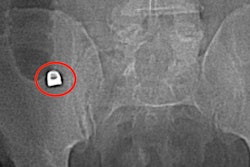Dear DrBicuspid Member,
Did you miss our webinar sponsored by Glidewell on investing in the digital future of your practice? It's not too late to watch it! You can still register and watch the presentation, which includes fun popular culture references and key digital dentistry learnings.
Top story of the week
The U.S. No Surprises Act took effect in January and aims to protect patients from unexpected hospital bills. Our top story of the week covered why it matters for dentistry, particularly for oral and maxillofacial surgeons.
In a new perspective published in the Journal of Oral and Maxillofacial Surgery, authors advised surgeons to prepare for enforcement of the law by building a team who is all in network for the insurance company of a given patient. Specialists can also protect themselves further by developing a disclosure procedure to let patients know what their insurance will and won't cover.
How to not lose millions
When you think of losing millions in your practice, you may think of the big events: a malpractice lawsuit, a big patient refund, or embezzlement. But more often than not, these events do little damage in the long run, wrote Dr. Roger P. Levin. It's far more costly to not do simple things well, like regularly replacing your systems or building a bigger patient base.
One of those simple things you may be struggling with is hiring the right team in the midst of widespread staffing shortages. If that's the case, Dr. James V. Anderson offered four tips to help you hire the right people.
Can antihypertensive drugs prevent bone loss?
Antihypertensive drugs may affect the thickness of the jawbone cortex, possibly preventing bone loss. The findings came from a new study that used cone-beam computed tomography (CBCT) imaging to compare jawbone thickness in patients who used and didn't use antihypertensive prescriptions.
People who took antihypertensive drugs, such as calcium channel and beta blockers, had thicker jawbone measurements on CBCT scans. The results need to be validated through additional studies, but the findings could one day influence dental procedures, such as implant therapy.
Dental crown causes appendicitis
Last but not least, an unintentionally swallowed dental crown caused a 51-year-old man to develop appendicitis, according to a fascinating new case report. Emergency department clinicians saw a metallic density in the man's appendix. When they removed the man's appendix, they discovered the crown.



















